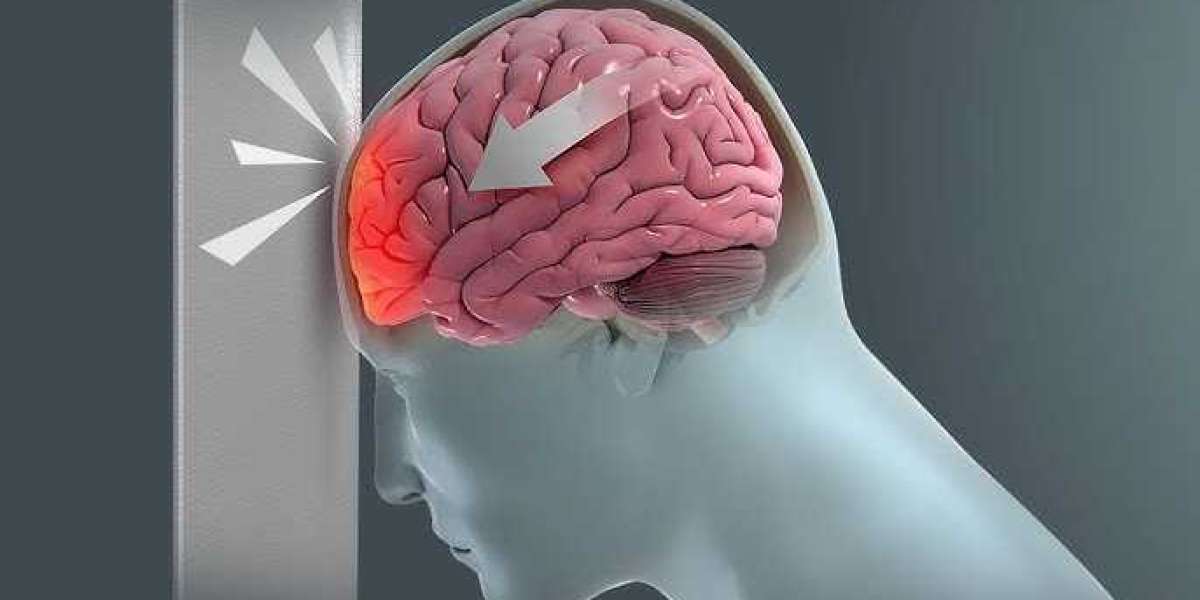Introduction
Traumatic Brain Injury (TBI) is a serious medical condition that occurs when an external force injures the brain. It can result from accidents, falls, sports injuries, or violence. TBI can lead to both physical and psychological issues, affecting an individual’s cognition, emotions, and motor skills. Understanding TBI is crucial for early diagnosis and treatment.
In this article, we will dive into the details of TBI, exploring its causes, symptoms, types, and available treatment options. Early detection and appropriate care can make a significant difference in the recovery process.
What Is Traumatic Brain Injury (TBI)?
TBI is any injury to the brain caused by an external force, such as a blow to the head or a sudden jolt. It disrupts the normal functioning of the brain, which can lead to temporary or permanent impairment of physical, cognitive, or emotional functions. TBI ranges from mild concussions to severe brain damage, and its impact can vary depending on the severity of the injury.
TBI can occur due to various causes, such as:
- Motor vehicle accidents
- Falls
- Sports injuries
- Violence (e.g., assaults, gunshots)
- Workplace accidents
Symptoms of TBI
The symptoms of TBI can vary widely, depending on the severity of the injury and the area of the brain affected. Common symptoms include:
- Physical Symptoms:
- Headaches: A common symptom of mild to severe TBI, headaches can last for a long period after the injury.
- Dizziness or balance problems: Individuals may have difficulty maintaining balance, leading to frequent falls or unsteadiness.
- Nausea and vomiting: This may occur with more severe head injuries, especially immediately after the trauma.
- Seizures: Severe brain injury may trigger seizure activity in some cases.
- Cognitive Symptoms:
- Memory problems: Difficulty recalling events before or after the injury, short-term memory loss, or an inability to retain new information.
- Concentration issues: Individuals may struggle to focus, leading to problems in work or daily activities.
- Confusion: Many individuals with TBI experience confusion, disorientation, or an inability to recognize people or places.
- Emotional and Behavioral Symptoms:
- Mood swings: Individuals may become more irritable or anxious after a brain injury.
- Depression or apathy: Long-term symptoms may include feelings of sadness or a lack of interest in activities once enjoyed.
- Increased aggression: Some individuals exhibit aggressive behavior or personality changes.
Types of Traumatic Brain Injury
TBI can be classified into different types based on severity and impact. The most common classifications include:
- Mild TBI (Concussion): This is the most common form of TBI and often involves temporary symptoms such as headaches, dizziness, and confusion. Most people recover fully with rest and proper care.
- Moderate TBI: Moderate TBI involves more noticeable symptoms that can last for days or weeks. Individuals may experience longer periods of unconsciousness or memory problems.
- Severe TBI: This type involves a prolonged loss of consciousness, often accompanied by severe cognitive and physical impairments. It may require long-term rehabilitation and intensive care.
Treatment for TBI
The treatment for TBI depends on the severity of the injury. Mild cases may require rest and monitoring, while severe cases demand immediate medical attention and intensive treatment.
- Initial Emergency Care: For severe cases, immediate medical attention is required. Treatment may involve stabilizing the person’s breathing, heart rate, and blood pressure. Surgical intervention may be necessary to remove blood clots or repair skull fractures.
- Medical Management: After the initial treatment, a variety of medications may be prescribed to manage pain, prevent seizures, or reduce swelling. Antidepressants or anti-anxiety medications may also be prescribed to address emotional symptoms.
- Rehabilitation: Rehabilitation is essential for individuals with moderate to severe TBI. This may involve physical therapy, occupational therapy, speech therapy, and cognitive rehabilitation to restore function and improve the quality of life.
- Surgical Intervention: In some cases, surgery may be needed to treat severe brain injuries. This could include removing blood clots, repairing skull fractures, or reducing pressure within the brain.
- Book an Appointment with the Best Neurologist at Instacare: If you experience symptoms such as memory problems, difficulty concentrating, muscle weakness, or coordination issues following TBI, it’s essential to consult with a neurologist. Booking an appointment with the best neurologist at Instacare can help address these concerns and guide you through the recovery process.
FAQs
- Can TBI cause long-term disability? Yes, severe TBI can lead to long-term disability, affecting cognitive abilities, motor functions, and emotional stability. However, with appropriate treatment and rehabilitation, many individuals can recover significantly.
- How is TBI diagnosed? TBI is diagnosed through a combination of physical exams, medical history, and imaging tests like CT scans or MRIs. These help determine the extent of the injury and guide treatment options.
- Is surgery always necessary for severe TBI? Not all cases of severe TBI require surgery. It depends on the nature of the injury. Surgical interventions may be necessary if there is bleeding, skull fractures, or pressure buildup within the brain.


